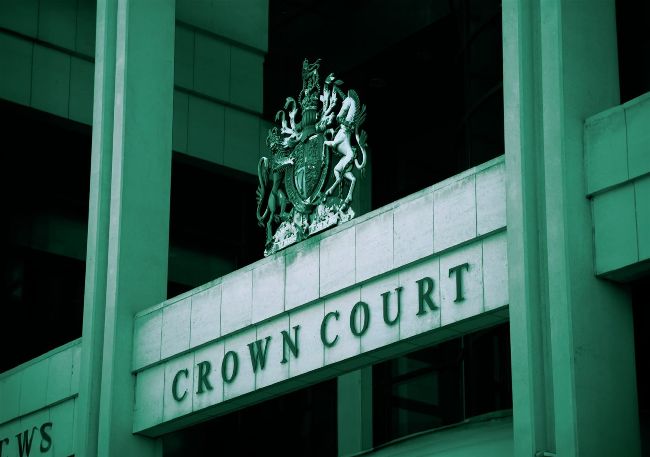A CLOSED SHOP…
My team and I deal with hundreds of clients each year who are seeking advice on bringing challenges against revocation or refusal decisions made by their respective police forces with regard to their shotgun or firearm certificates, or RFD registration, says Lachlan Nisbet.
Appeal cases of this nature are now prepared in a fairly routine way — following a judicial review case known as Mason — which broadly provides for disclosure to be made by the police first. The appellant will then prepare and serve his or her case, discussion is had as to the issues in dispute, availability and so on, all of which leads to a listing — a hearing date at which a circuit judge (an experienced crown court judge) and two lay magistrates (volunteers who usually sit as a panel of three in magistrates courts hearing lower-level criminal cases) will determine the fate of the appellant’s case.
As a general rule, in all legal proceedings in England and Wales, material which parties seek to rely upon is disclosed together with, in most cases, any other ancillary material which might be relevant to a party’s pleaded case. Nothing controversial in the idea that fairness demands that forces who have decided that a person is unsuitable to hold a certificate should demonstrate why, set out the evidence for their decision and have that evidence tested before the courts.
In recent months, an interesting development has been highlighted involving the use of Public Interest Immunity (PII) and Closed Material Proceedings (CMP) (the latter as a corollary to the former) in firearms licensing cases. Simply put, PII is a method, usually employed in criminal cases, by which the Crown might seek to withhold disclosure of material which would otherwise fall to be disclosed to a defendant. In order to withhold disclosure in a given case the party seeking a PII certificate must apply to the court setting out what material it seeks to withhold and why. Categories of PII might include material which i) is received from intelligence and security services, ii) is material given in confidence, iii), is supplied to an investigator relating to a child or young person, which has been generated by a local authority social services department, iv) that reveals the identity of a police informant or witness or other person supplying information to the police, or v) which relates to the private life of a witness. CMP, as above, are the logical corollary to PII and as the name suggests they allow for a hearing to take place during which the court and police force are sighted of the PII material, but the appellant is not. Any appellant seeking to assess the likelihood of success in such a case where is he “flying blind” is at a distinct disadvantage of course.
A case decided earlier this year, referred to as the Kingston case, confirmed that PII and CMP in principle may be used in firearms licensing cases but that it should be used sparingly. It read: “It will be evident that a CMP should only be considered where it is critical for the fair disposal of a firearms appeal. The existence of the jurisdiction in such cases emphatically does not mean that such a procedure should become the norm.
The starting point in every case should be that the approach laid down in Mason should be followed. In particular, the respondent to such an appeal must consider most carefully whether the appeal cannot properly be resisted without reliance on sensitive material, even where such exists and has been relied on in reaching the decision challenged.”
One current case in which I am instructed deals with a situation where a force failed in its application before the crown court for a PII certificate. That case is subject to ongoing judicial review proceedings and as such it is not possible to comment upon it at this stage. I expect that there may be more to discuss following the determination of that case and I will write a follow up article as and when it is appropriate to do so.
It will, I’m sure, come as a surprise to most to know that they could find themselves in the position of appealing a police licensing decision in circumstances where they are unaware of the content of material adverse to their position and are precluded from meaningfully engaging with it. It is possible to seek the appointment of a special advocate in such circumstances – a barrister appointed to engage in CMP but who is prevented from disclosing the material subject to PII to the appellant, but it is difficult to see how such an advocate can be instructed to meaningfully engage with such material without clear instructions from the appellant. Further, the costs of such a step are likely to be very considerable and it is far from certain who might ultimately bear the burden of such costs.
“AN INTERESTING DEVELOPMENT HAS BEEN HIGHLIGHTED INVOLVING THE USE
OF PII AND CMP”
Material which is considered sufficiently serious to render a person a danger to the public safety or the peace such that they ought not to be permitted to hold a firearms certificate is likely to be something which could interfere in other areas of a person’s life. I would certainly be extremely uncomfortable in a situation where the police held information about me potentially containing serious allegations of wrongdoing which are either false or capable of correction but which I am not permitted to know about and may never know about.
GET IN TOUCH
0151 600 3420
07955 200 607
lachlan.nisbet@brabners.com
brabners.com

IMAGE: SHUTTERSTOCK -SINAI NOOR